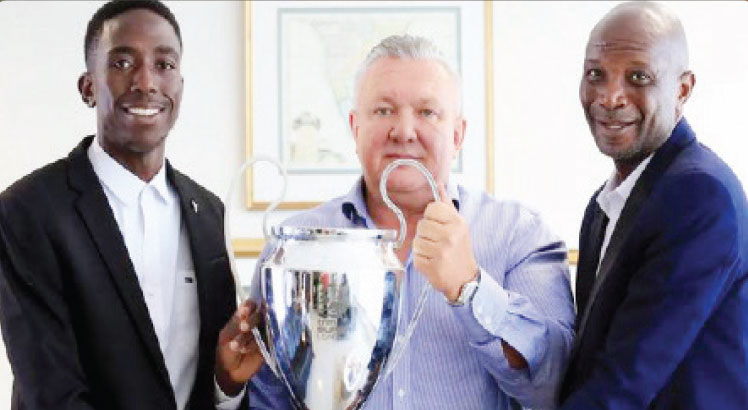Aspirants warn MEC, wind up debates in style

Eleven of the 12 presidential candidates in the May 20 Tripartite Elections last night slugged out in a final exchange that resembled a debate, which a political and development analyst described as “a conclusion of the beginning of a new political culture during elections.”
Missing on the line-up for the third time running was incumbent President Joyce Banda who is leading People’s Party (PP) in the race.
Those that made it were Peter Mutharika of Democratic Progressive Party (DPP), Davis Katsonga of Chipani Cha Pfuko (CCP), George Nnensa who is leading the Tisintha Alliance, Lazarus Chakwera of the Malawi Congress Party (MCP), Kamuzu Chibambo of the People’s Transformation Party (Petra), Prof John Chisi of Umodzi Party (UP), Friday Jumbe of New Labour Party (NLP), Mark Katsonga Phiri of People’s Progressive Movement (PPM), Atupele Muluzi of United Democratic Front (UDF), James Nyondo of National Salvation Front (Nasaf) and Helen Singh of United Independent Party (UIP).
Reacting to the debates so far, political and development expert Samson Lembani said: “From the quality and quantity of the interest these debates generated to the kind of arguments and ideas that have come through, everything has been phenomenal.
“One can only hope that we are past the phase of time when our politics only featured name calling and slander.”
The third and final presidential debate was held at Hotel Victoria in Blantyre after the last two that took place at the Bingu International Conference Centre (Bicc) in Lilongwe.
In a straight response to criticism that the last encounters came across to many commentators as mere quiz competitions or panel discussions, lacking in rebuttals and arguments bordering on policy differences, moderator Patrick Semphere promised a different night that was.
“We have taken note of the observations that these series have not provided an interactive debate where candidates state clearly where they differ, and why they chose to be different. We will try to achieve that debate tonight,” said Semphere to an audience of mainly opinion leaders and captains of industry.
He had an explanation why a fully-fledged debate could not be had on the previous two occasions.
“Because of the numbers that we have in this contest,” said Semphere, referring to the 11 candidates that have been participating in the debates, “we could not achieve the real debate because of time constraints.”
The appetite for an exchange among the candidates showed immediately when, in responding to the first question with regard to intraparty democracy, Katsonga Phiri took a dig at Mutharika as the right person to provide answers as to why Presidents continue to rule, without seeking fresh mandate, when they ditch their sponsoring parties while in power.
Katsonga Phiri was apparently referring to former president the late Bingu wa Mutharika’s dumping of UDF in 2005, a party that sponsored his ticket to State House in 2004, to form DPP.
But Mutharika hit back: “I would want to think that the PPM candidate has misdirected the honour to me because he is able to testify that I have never left the DPP, nor have I been a President who dumped his party after being elected.”
The moderator also brought a width of aggression in his display when he pinned candidates to their past records in his follow-up inquisitions.
For example, Semphere tore into UDF candidate Atupele Muluzi with a reminder that the previous administration of his party authored the collapse of ethical and professional conduct in the civil service when the politician said his administration will tackle financial mismanagement in the public service.
Semphere also pinned Chakwera to account for the atrocities of his party’s 30-year administration and assure Malawians that there will never be a repeat should the party be voted into power.
Mutharika was also asked to defend his candidature as not being a product of lack of intraparty democracy in his party where his brother, Bingu, purportedly facilitated it in his favour.
The DPP man defended himself, saying: “In fact, my brother opposed my proposed candidature for eight months.”
There were sparks of humour too as the candidates tackled the themes of the day: Intraparty Democracy; Taxation; Health and Population; Foreign Policy and National Unity.
Katsonga Phiri cracked the ribs of the audience, including his fellow panellists, with rounds of laughter when he said once voted into power his Cabinet will be made of all the presidential candidates in this election.
Their differences on almost all policy issues only bordered on semantics and strategy of execution.
In their concluding remarks, they also shared a common denominator in warning against rigging and calling on the electoral commission to remain vigilant.





